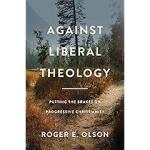I looked up into the face of an earnest man in his mid 40s who now sat next to me, looking at me expectantly. When I didn't reply immediately, he asked, "Well, have you?" I said, "I'm glad you asked that question. I've been reflecting on Jesus' words to Nicodemus in John chapter 3 and I don't think Jesus means 'born again' as if it were some emotional lightning strike that once it's over, we speak of our salvation in the past tense, like, that's done, now I have that checked off my to-do list. I think being born again calls for our participation, and I think it's a lifelong process." At that the man shook his head as if to say "Geez, lady, it's a yes or no question. How hard is that?" He took his tract back and moved on.
Nicodemus, do you want to be born "from above"? It's not such a simple question for him. That's why his whole life his answer seems to have been "Yes, well no. No, well yes. Yes and no."
Being born from above—what is that? I was at a meeting recently in which a group of Methodist church leaders were talking about our Wesleyan heritage and how we can translate it for the next generation. We were trying to come up with a definition of the reality of divine Grace. Said one person, "I know Grace is amazing, but beyond that, how would we explain it to someone who had no church background?" Richard Heitzenrater, a Wesley scholar from Duke Divinity School, spoke up. He said, "For Wesley, Grace is what God is doing at the depths of your life by the power of the Holy Spirit." We all looked at each other like "Well, why didn't we say that?" Being born from above is letting the Holy Spirit do what God wants done at the depths of our life.
According to the Gospel of John, that is a gradual journey from night to day, from darkness to light. It is a daily pilgrimage from belief as reciting a creed to belief as opening the door to our soul and letting Jesus in. It's a daily process of flipping the card on our door that says to God "Please do not disturb" to "please come in and help us clean our room."
What does God want to do through the power of the Holy Spirit at the depth of our lives according to John's gospel? Forgive our sins for one thing. Give us and our community the courage to live with joy and purpose for someone other than ourselves for another. Give us peace and the assurance of eternal life for yet another.
Nicodemus, do you want to be born from above? Come on, man, yes or no? What are you afraid of?
He is afraid that being born from above will mean losing control, and he liked control; he liked knowing who was righteous and who was a sinner, what to eat and what not to eat, with whom to associate and whom to label "unclean."
To him, Jesus' comparison of being born from above with the action of the wind was probably a frightening one because the wind is unpredictable, wafting away items to which we have become attached and blowing in others we would not have chosen.
If we start letting the wind of the Spirit blow through our souls, our church, our families, who knows what might be blown out and what might blow in? Resentments and prejudices we have cherished for decades might blow out the window. One of us may sit in church next week and sense some of our usual sorrow, wafting out the back of the sanctuary, in its place a fragrant breeze bearing hope. Next week when we come to church, some people we don't recognize may be sitting on the back pew or standing behind the pillar looking in, waiting for an invitation to come into the arena of light and warmth. And we may feel our feet moving in their direction.
Anything can happen when it comes to wind. The fog might lift from a whole church that thinks their best days are behind them. A whole church could feel the brisk, energizing breeze of hope, and purpose stronger than their pain. If we say yes to the question, "Do you want to be born again or born from above?" the belief in Christ we now recite with our lips could become the blood running through our veins.
In graduate school, I struggled with a particular course I had to take. It took me a while to get with it, but gradually I caught on, and my grades improved. At the end the instructor told me I had made great progress. "You have to start somewhere," he said. "It is not where you start out but where you end up." This late night encounter could be the start of a life of deep faith and devotion to Jesus for Nicodemus.
Or not. We don't really know what happened to Nicodemus after this initial encounter. I suspect he endured a lot of sleepless nights. Perhaps he kept a scrapbook of Jesus' appearances and achievements, following them from a distance.
After chapter 3, Nicodemus makes two more appearances in John's gospel. One is in John 7:50 where he makes a halfhearted defense of Jesus to other Pharisees. A second is in 19:38 where he brings 100 pounds of myrrh and aloes to help Joseph of Arimathea take Jesus' body and wrap it in spices and linen cloths.





